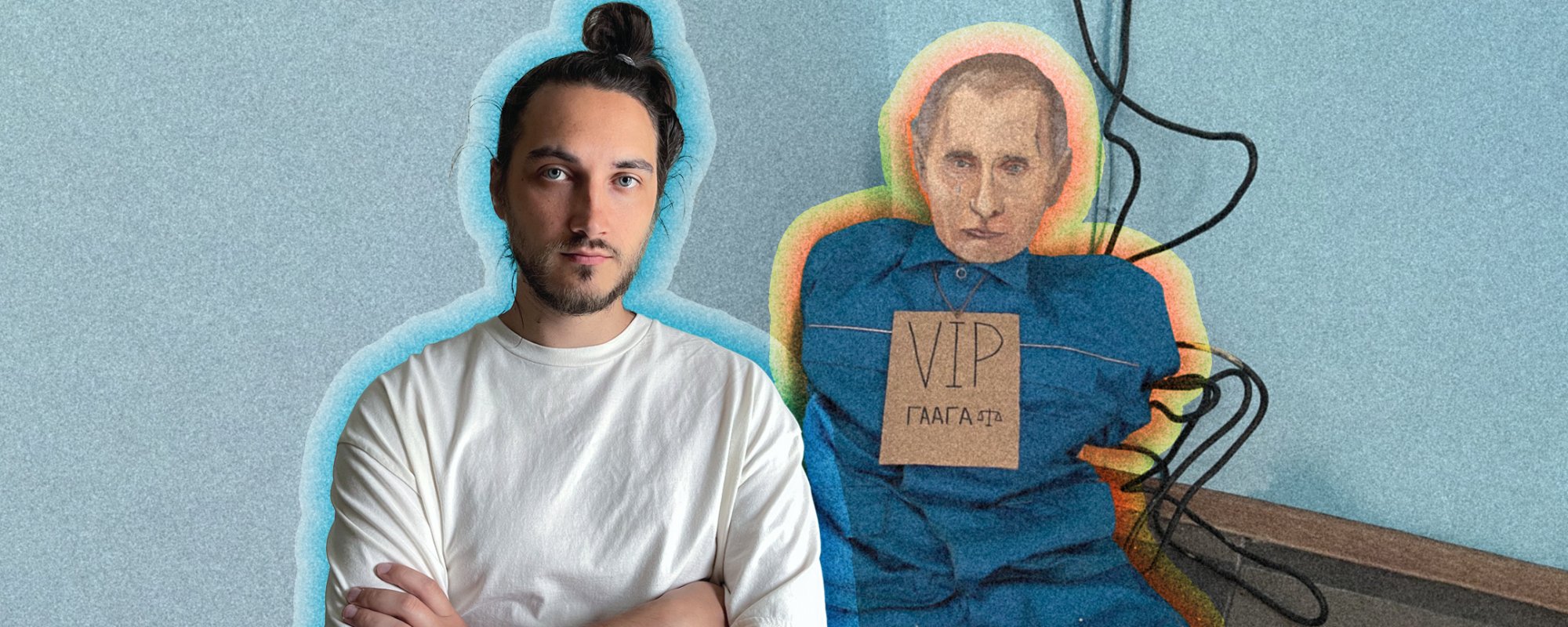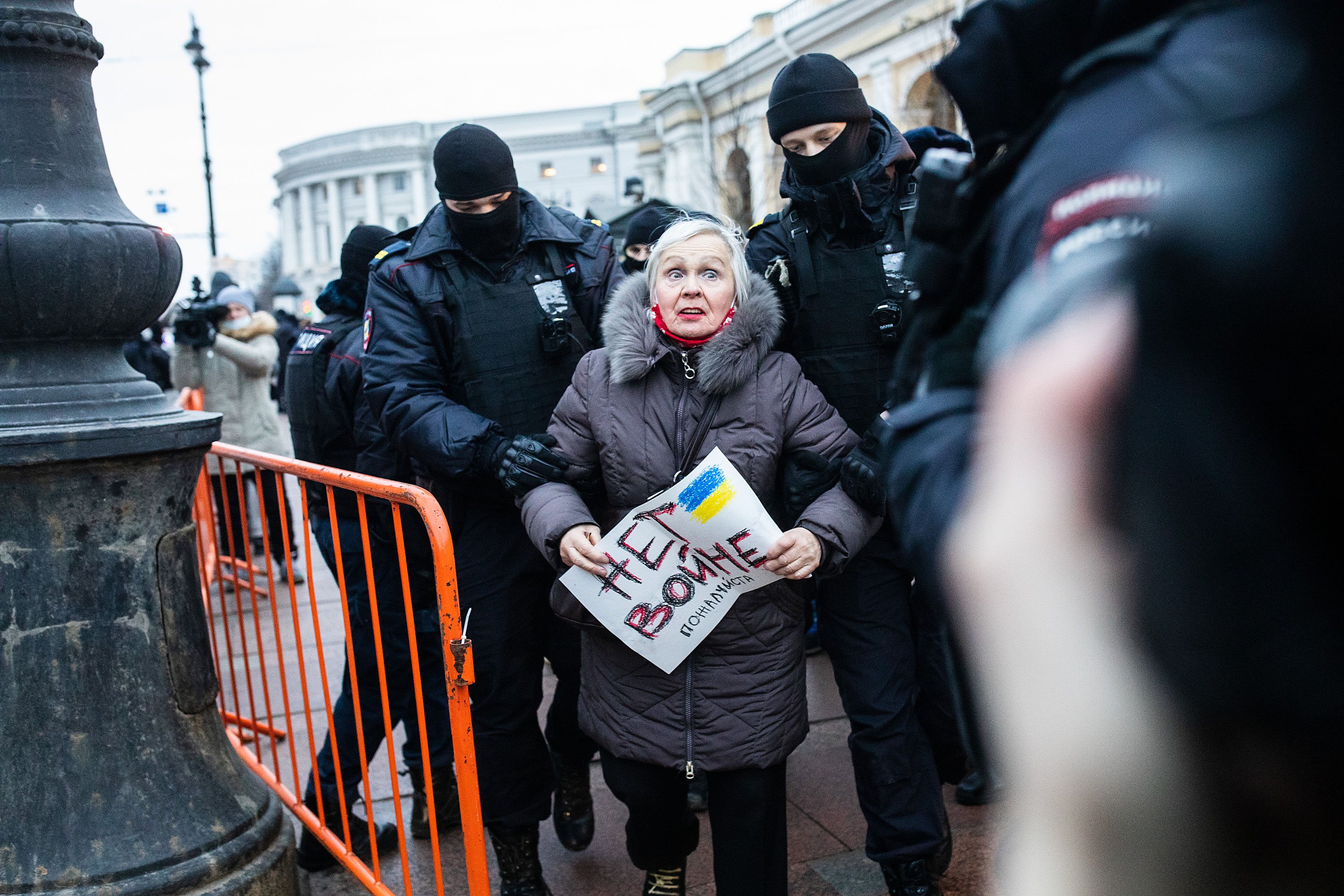In early May artist Andrey Semkin’s mother was detained in Siberia’s Krasnoyarsk region. Initially police officers requested that she come to the civil registration office to answer «a couple of questions» about her son, but then browbeat her into following them to the police office. The artist links the pressure on his relatives to the anti-war exhibition he had organised before leaving Russia.
On April 22 my wife and I opened our anti-war exhibition in Zheleznogorsk [a small town in southern Siberia]. We presented it as a showcase of my still lifes, so nobody expected there would be any political context. Those who visited the exhibition were very astonished, but the feedback was mostly positive. They called us heroes for speaking out.
My wife and I left Russia not long before the opening, understanding that we might face persecution.
A week later my friend noticed that all the display exhibits except our stuffed effigy of Putin had disappeared. I think the venue owner had taken them away. As we found out later, he held pro-war views. He might have left the effigy because he believed there was a bomb inside it.
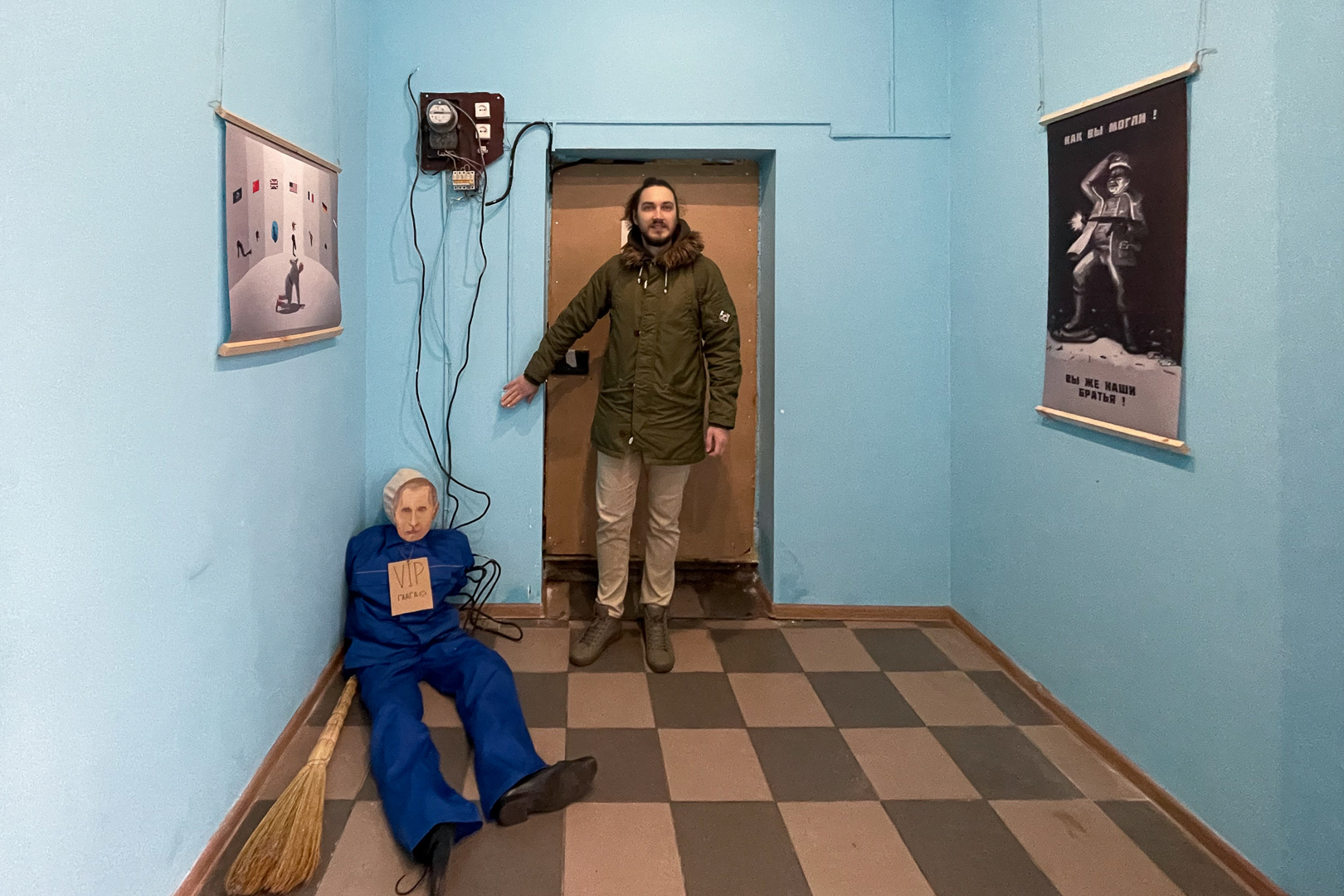
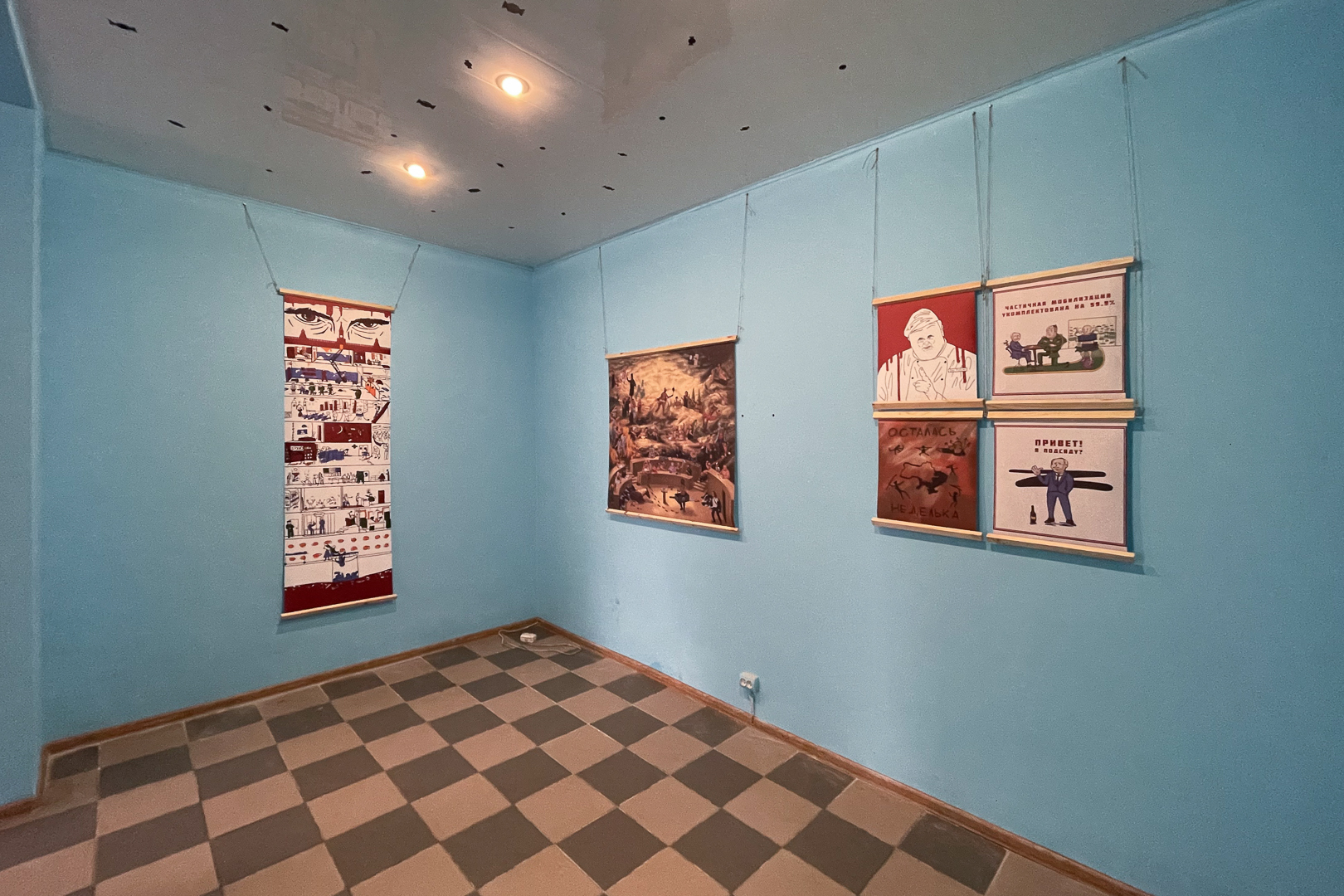
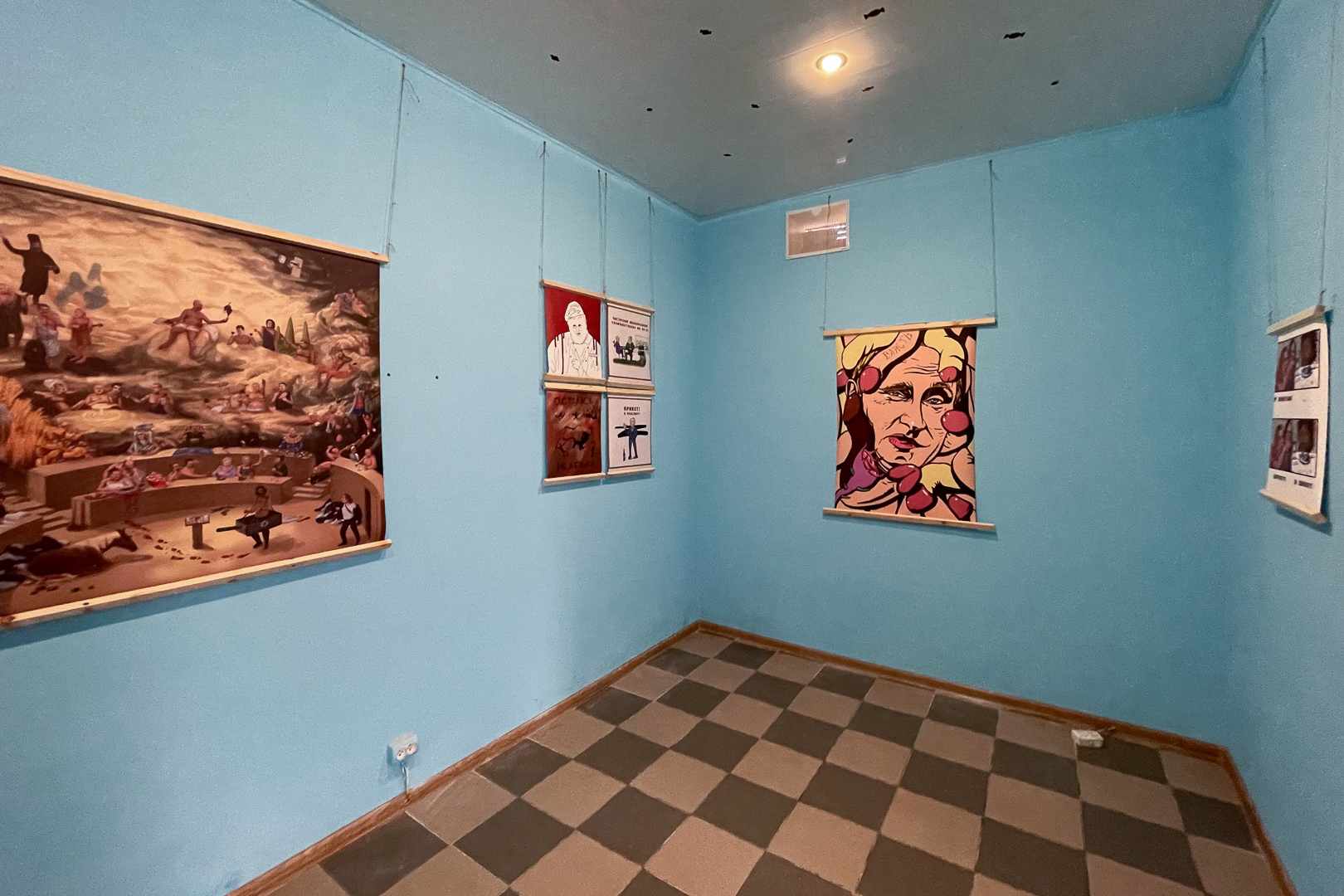
The venue owner later wrote to us saying he had allegedly discovered a crack in the window after the exhibition opening. We are sure it had already been there before that. Unfortunately, we do not have any proof, so we offered the owner an amicable settlement: we would pay for the window repairs, and he would not call the police.
The owner, however, clearly wanted to show off, saying "I have friends in the police, we will find you anywhere." He threatened to get my mother involved to resolve the issue. They had crossed paths before, when he was handing the keys to the premises off to my mother, a month before the exhibition opened. We were in Moscow at the time and could not collect the keys on our own.
I don't know whether the owner eventually filed a report, but on April 30, the police came to my parents' place. According to the neighbour across the hall, they knocked on our apartment door first and then on hers. My mother was not home at the time, and my father currently lives in the countryside.
The neighbour talked to the police. She was asked who lived in the apartment across from her. She said, "An elderly couple." That was the end of the conversation.
That same day, they started calling my father. They offered him and my mother to come to the police station for a conversation about me, saying "Your son is putting up some stars around town." I think the police said that so that my father would tell them what I was really up to. He refused to go to the station. The police said they could come to him instead, so he told them to go to hell, to put it bluntly: he told them not to bother. The police did not call again.
The next day I got a call from my mom. I picked up the phone but heard an unfamiliar voice. The man introduced himself as a Criminal Investigation Department inspector: "Your mother is ten centimetres away from me. We can't reach you at all. Your phone is off, so we decided to talk through your mother. She is your closest relative, after all. I want to talk to you about your exhibition.”
I said that my phone had no reception, but he could reach me via messaging apps. The investigator gave me his number. He said that I needed to call and arrange a time to come to the police station. Supposedly, they wanted to talk to me and issue a fine of 10,000 rubles (US$ 119) for holding an anti-war exhibition. The police officer did not explain what exactly I was being prosecuted for.
— What will happen if he doesn't come to the station? — my mother asked.
— We'll find him anyway, but then it will be a criminal case.
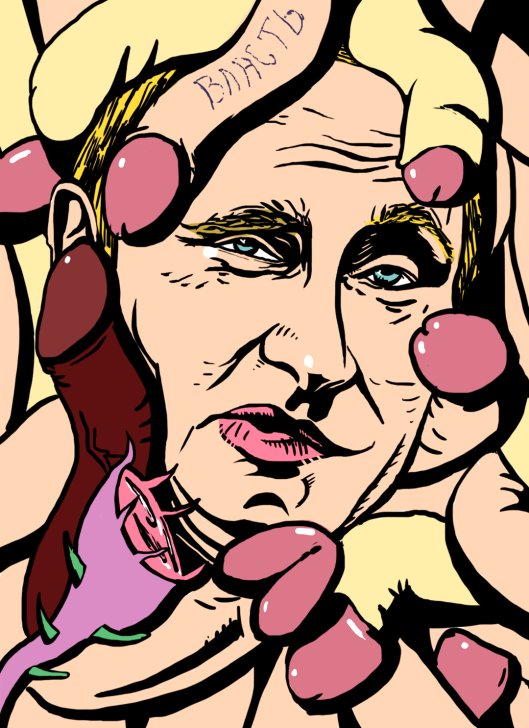
As I later realized, my mother and the officers were at the police station at the time of our conversation. Earlier that morning she got a call. She didn’t pick up, so they sent her a text message that read something like this: «I’m from the Criminal Investigation Department. I need to ask a couple of questions about your son, please answer».
My mother called the number from which the text had been sent. They asked her to come to the local registry office, explaining that the police had «а couple of questions» about me that they wanted to ask her personally. My mom arrived. She was then asked to follow them to the station.
— You only have two questions for me, ask them here, — my mother said indignantly.
— Such serious matters are not solved in the middle of a street, — replied the police officer.
She told them she did not want to go. That’s when the officer started threatening her: «You will come with us one way or another — either voluntarily, or we will call up a squad and they will bring you there.»
At the police station, they only asked my mother about me: where I’d studied, where I’d lived, where I’d worked, what I did these days and who my wife was. According to my mother, the police officers already had all this information. Moreover, they showed her pictures of me on a tablet, taken from various social media. However, she couldn’t recognize where they were getting those photos, as she doesn’t use Vkontakte or Instagram.
In addition to the pictures, the police officers had all our addresses: both the one in Moscow, where we’d been living, and the one in Zheleznogorsk, where I’m officially a resident. The place in Moscow is my mother-in-law’s property, legally registered in her name. So we’re quite concerned about her, too.
After that, the officers started asking about the exhibition, trying to find out if my mother knew anything about it. They showed her one of the exhibits — the stuffed Putin effigy — and asked if she had seen it before and if she knew what it was. My mom didn’t.
When the investigation ended, they made her sign a document with the questions she had been asked and her answers. I think she was under duress and that is why she cooperated, seeing how she was initially asked out for an informal meeting that eventually turned into a formal questioning.
They even took her fingerprints, boot prints and a saliva sample for her DNA, all while ensuring her that was a standard procedure for everyone who comes to a police station. My mom is still terrified, she is afraid to just share what questions she was asked or talk about how the conversation went.
After the questioning, the police said that they wanted to go to my mom’s home to inspect the flat. She agreed but managed to let my dad and sister know what was happening. Dad immediately drove back into town, and my sister came over, too.
Five people, three of them in plain clothes, began to inspect the premises. They entered the flat, had a quick look around, said they had nothing else to do in there since there were no «Ukrainian traces», and left. One of the police officers was taking photographs the entire time. Then they said they needed to wait for a detective. It took her over an hour to get there.
As my mom later explained to me, the detective was called in on her day off. The urgency was attributed to the fact that the Moscow FSB office had allegedly «signalled» that the case should be sorted out quickly, as it might potentially be big.
In the end, when the investigator arrived, they asked my mother to sign some unidentified papers again. Now I’m worried that they might use them against her or falsify something. They now have my mom’s signature and her fingerprints, after all. That is the scariest part, because right now there is no place to relocate my mother to, she doesn’t even have an international passport yet.
No one has called my mother since then. The police officer tried to contact me, but my phone ran out of battery that day, and I didn’t see any missed calls. I plan to message them, informing them that my wife and I have left Russia and asking them not to bother our relatives anymore. For now, I’m waiting for a response.
Recorded by Karina Merkuryeva



